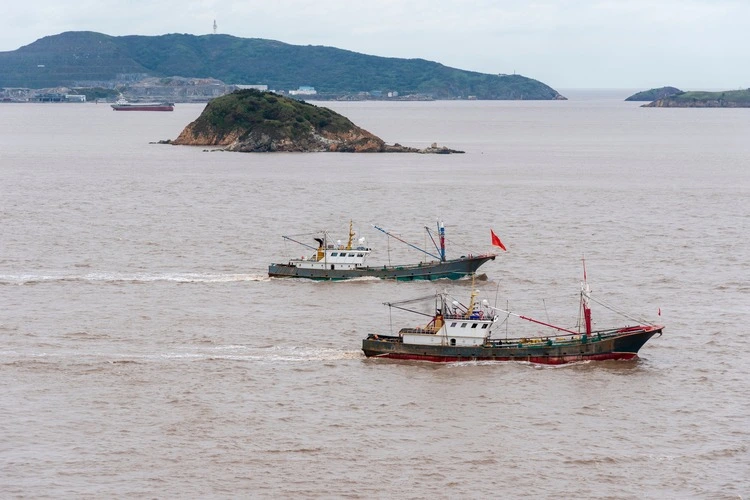
Report finds North Korean crew members onboard 12 Chinese fishing vessels between 2019 and 2024 were subject to forced labour and a range of abuses
By
An investigation from the Environmental Justice Foundation (EJF) has revealed a fleet of Chinese tuna fishing vessels reportedly used North Koreans as crew between 2019 and 2024, in a move that likely violates UN sanctions and allegedly subjected North Korean workers to a range of abuses including being trapped at sea for up to a decade.
Related reads:
According to the investigation’s report, the North Korean regime routinely exports labour to generate revenue, which is suspected in part to fund nuclear programmes. Therefore, the use of North Korean labour outside of the country is banned by the UN. Other larger bodies, such as the EU and the US, have also taken steps to prevent goods produced by North Koreans from entering their supply chains.
The latest investigation’s findings show that the presence of North Korean crew onboard Chinese tuna vessels has likely bypassed these legal frameworks, meaning seafood markets in the EU, UK, and Asia have been supplied with North Korean goods.
EJF identified North Koreans across 12 tuna longliners in the Indian Ocean, based on interviews with Indonesian and Filipino crew onboard between March 2019 and June 2024. This marks the first time that North Korean labour has been publicly documented on a distant-water fishing vessel, although it is believed China hosts as many as 100,000 workers in seafood processing plants exporting to the EU and US.
Forced labour onboard
The experiences of the North Korean crew onboard these tuna vessels, combined with the number of years they allegedly spent at sea, constitute forced labour, according to the investigation. One such example of the alleged mistreatment of the crew is in the severe restrictions imposed on them. Passed from vessel to vessel – in a method known as trans-shipment – North Korean crew members were prevented from returning to land, and were also banned from leaving the vessels during port visits. In addition to this, possession of a mobile phone was prohibited.
As an Indonesian crew member said, ‘Six Koreans were not allowed to go home even after they completed their four-year contract. They were just moved from one ship to another.’

In the report, another crew member reported the restrictions that North Koreans onboard were subjected to: ‘They were not as free as the Indonesian crew. They went to the store [in Mauritius] one day to buy supplies [. . .] the captain told them that they could only go that one day. Afterwards, they were not allowed to go outside.’
Some of the 12 vessels focused upon during the EJF’s investigation were also found to be undertaking illegal fishing activities, including shark finning, fishing for prohibited species and capturing marine megafauna such as dolphins.
‘The use of North Korean labour on board Chinese fishing vessels is a damning indictment of the failure to regulate our oceans,’ said CEO and Foudner of the Environmental Justice Foundation Steve Trent. ‘Illegal fishing and human rights abuses can be found almost without exception on board China’s distant-water vessels. However, the use of North Korean forced labour for such long periods is a particularly severe example of the egregious misconduct uncovered by EJF.’
‘The ripple effects of this can be felt far and wide, with the fish caught using this illegal labour reaching seafood markets across the world. China bears the bulk of the responsibility, but when products tainted by modern slavery can be found on our own plates, it is clear that collective responsibility needs to be taken by Flag states and regulating bodies as well,’ Trent continued.




